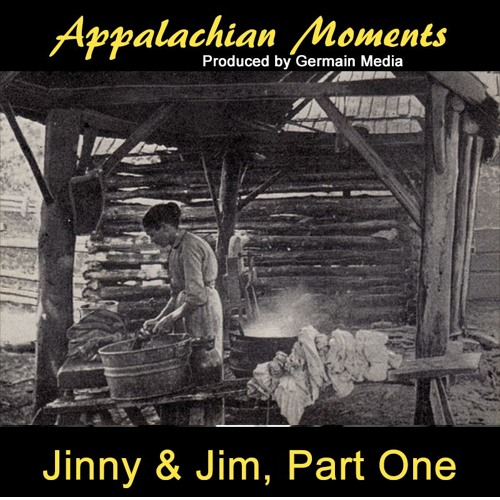New Appalachian Moments Blog Post by Scott Ballard
Her name was Virginia, named in part because her father was in Virginia with the Confederate Army coinciding with the time of her birth.
Jinny, as she was called, could truthfully claim pioneer ancestry. Her mother’s family included hunters and trappers who roamed Western North Carolina. They were hardy stock for as her mother lived to be 95.
When she married Jim, they moved into a single-room log cabin with a tumble down chimney in the Blue Ridge hills in the community of Lower Young Cane, Georgia. Babies, all boys, came along thick and fast, and Jim built a two-room addition with beds and trundles as needed…and they were needed!
That old farm with its corn rows hanging on the hillsides above the valley, the stumps and rocks and thickets and briar patches… had a heartache on every foot of the red soil…but it was home.
Jinny’s day started before daylight. Cooking breakfast was the first order of business and it was always a relief when the morning meal was over and the gaggle of boys had vanished off into the fields as then she could mop and sweep unbothered.
Most meals consisted of beans, potatoes, cabbage and corn bread. Feast days were few and far between. In hog killing time, however, when cracklins were in abundance short’n bread was a favorite, but to make the fresh milk last she’d tell her boys to, “take big bites and little sips to make everything come out even.”
At Christmas Jim would lay in a supply of stick candy and Jinny would make cakes, pies and a special cookie man that she placed at the top of each stocking near the hearth…the cookie man would stare silently through the long night, with arms outstretched, waiting to be pounced on by gleeful boys early Christmas morning. There were never any toys. Let me repeat…no toys…ever.
Jinny weaved on a loom and Jim made the shoes from leather that he tanned himself as the first boys were born, but as the boys and their needs outpaced him, Jim and the older siblings had to hew cross ties to get enough money to buy store bought clothes and brogan shoes.
They say the eyes are the windows to the soul, but you can also understand much by seeing and feeling a person’s hands. Jinny’s finger tips were blue and pricked from needle points, sewing, darning and mending, and hard and calloused from the heavy work of wash day boiling, batting and twisting the laundry of eight farm hands. The joints of her hands were big and rough. The nails torn and stubby. But Jinny lived without complaint because she lived for others…seven sons and a husband…and her many sacrifices made life easier for that next generation and that ripple of selfless service is still felt today over 100 years later…I know this to be true. Jinny was my great-great grandmother.
Please click below to hear the audio version. While this blog post is complete, the story is unfinished until next time on Appalachian Moments. Stay tuned and share your pioneering ancestors stories in the comments below, we’d love to read them!

